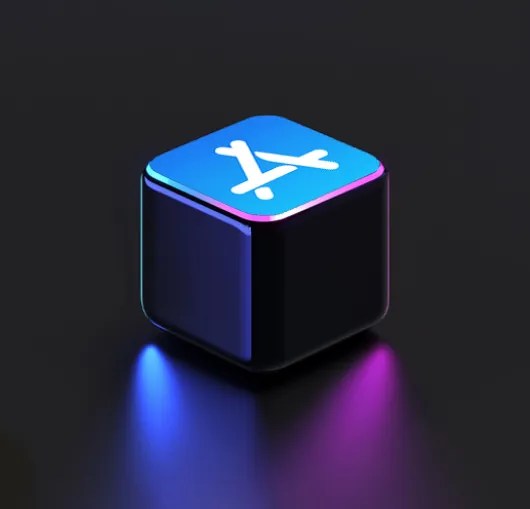Top Frameworks for Building Hybrid Apps in 2024
Hybrid mobile app development frameworks have significantly provided ease to the developers. With a single code, they can build applications that perform well on every platform without having to do the extra hard work, as writing a unique code for every platform is a time-consuming process. Such applications smoothly run on Android and iOS and can be reused for progressive web apps or even desktops apps.
So, here we will discuss the basic understanding of hybrid apps and list down some of the best hybrid app frameworks that have become increasingly popular in a few years’ time.
What are Hybrid Apps?
Essentially, hybrid apps are web apps. They are the right blend of native apps and web apps. The core of a web app but it is given a container of a native app that allows it to possess native app’s features and device hardware.
Hybrid apps can be easily downloaded on multiple platform such as Android and iOS, allowing the developers to use the same code for every operating system. They are built with effective front-end development technologies such as HTML5, JavaScript, and CSS.
Difference Between Hybrid App and Native App
Now you must be wondering, that hybrid and native apps sound quite familiar. However, there are some striking differences between the two. Let’s us discuss that.
- Native apps are built exclusively for a single platform whereas, hybrid apps are designed to run on multiple platforms.
- For native apps, developers are supposed to rewrite and redesign every functionality of the app in native development language. On the other hand, for hybrid apps, a single codebase is used to write all app functionalities.
- The budget for native app development is quite high as compared to hybrid apps which are cost-effective and provide optimal user experience in low cost.
What are Hybrid App Development Frameworks?
Hybrid app development frameworks are the software programs that enable developers to create applications that can seamlessly run on various operating systems. They are single codebase frameworks that are meant to bridge the gap between native and web apps.
Top Hybrid App Development Frameworks
Some of the renowned Hybrid app development frameworks are listed below:
1. Ionic
Ionic is one of the popular frameworks. It is a free and open-source framework for hybrid app development that offers a wide variety of tools and services for hybrid apps including HTML5, CSS, JS, and Sass for front-end and back-end. Every developer agrees that Ionic has just the right ecosystem of products and services and it is an easy framework to get the hang of which empowers the developers in the long run.
Using Ionic, you can easily build Progressive Web Apps (PWA) and with its rich library for front-end building combined with amazing user interface features help create a the finest PWAs. This framework has more than 120 native device features including Bluetooth, Cordova, HealthKit, etc. it has a great quality UI components and gestures. Some of the apps that used Ionic are McDonald’s Turkiye, Justwatch, and Sworkit.
2. Flutter
Google claims that Flutter strives for the native-like experience while you have the control of your apps through UI toolkit. With a single codebase, Flutter can build an extraordinary UI for different platforms. This framework was written in Dart programming language and possess its own library of intuitive UI components that are called widgets. Developers can customize widgets with respect to their own requirements of every project.
One of the best parts about using Flutter is how it compiles apps to native machine codes which results in amazing run-time performance. With its reloading feature, Flutter enables developers to view changes they make in the code immediately. Using this feature, they are able to debug, reiterate, and refine apps during the process of development, without having to restart. This framework is free of cost and provides greatly customizable platform themes.
3. React Native
React Native is a framework which is developed and maintained by Facebook. It is a framework with which you can build mobile apps using only JavaScript. It is used to develop cross-platforms apps and possesses a language called JSX for user interface development.
Its designs are the same as React’s and allows you to construct a top-notch UI from declarative components. This framework does not give you a mobile web app or a hybrid app, but a mobile app almost identical as the ones built using Objective-C or Java.
Some of the best examples of React Native apps include Airbnb, Skype, Tesla, Amazon Prime, and many other big brands. Some of the reasons for its increasing popularity is its integration with third-party plugins, reusable components, and component-oriented GUI development for front-end applications. React Native enables web app developer to convert their current web apps to mobile apps.
4. Xamarin
Xamarin is considered to be the smart and powerful framework that is acquired by Microsoft for cross-platform app development. It was a community project until the tech giant acquired in 2016. The framework is written in C# and has a single codebase approach to develop native-like apps for iOS, Android, and Windows.
For different platforms, Xamarin can use a huge chunk of codebase for various platforms, enabling developers to save time and resources. What makes Xamarin stand out is its capability to integrate libraries for Java, C++, and Objective-C directly. React Native and Xamarin are tough competitors as developers choose them for a creative website under budget.
The installation of Xamarin is quite simple, all one has to do is download the Xamarin installer and run it. By using this framework, they can build a strong ecosystem with APIs, components, back-end, libraries, and programming languages that are backed by an active community.
5. Kendo UI
Kendo UI was developed by Telerik (same parent company ash NativeScript) as a JavaScript UI framework. It is an open-source framework with extensive features and is known for its elegant functions and support for several frameworks. To create a perfect hybrid mobile app, it has libraries for jQuery, Angular, React, and Vue.
The focus of this framework is to allow mobile app developers to build strong and quality hybrid apps, aimed at enterprise clients. The best part about Kendo is the exceptional support it provides and how it guarantees that every component has strictly undergone their QA process.
Kendo has more than 140,000 clients and of the top names include NASA and HP. The framework doesn’t have free versions available and it is rich in ready-to-use widgets. It is used to develop HTML5 mobile apps and operates effortlessly on key smartphone platforms which is makes it the best hybrid app development framework.
6. Framework7
If you want to develop hybrid mobile apps, web apps, or PWAs with native-like experience, Framework7 can be your best choice. It is an open-source mobile HTML framework with fast and robust features which makes a top choice for Windows, Mac, Web, Android, and iOS.
With it design-first approach, it has the ready-made designs and components that are customizable according to your choice. It provides supports got Vue.js, React, and Svelte. The highlighting factor of Framework7 is its captivating UI such as popups, side panels, layouts, and more.
Hybrid app development frameworks have endless advantages for you to benefit from. However, choosing a framework for your mobile app is tricky. You must evaluate your choices and consider specific feature of every framework to check which one works the best for you. As a leading hybrid app development company in Dubai, Digital Gravity has a talented team of hybrid app developers which build interactive, intuitive, and scalable mobile apps for clients all across the globe.



